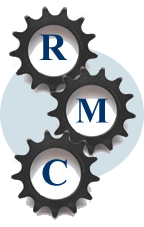Baltimore, Maryland, faces unique environmental challenges that make elevator sump pumps essential for building safety. This is why a reliable sump pump system is crucial for commercial and residential properties in Baltimore and surrounding counties like Howard County and Anne Arundel County. Key factors include the impact of weather, the importance of regular service, and how to ensure compliance with local elevator building codes in Baltimore City and Baltimore County.
The Importance of Sump Pumps in Baltimore
In Baltimore, the need for a functional sump pump cannot be overstated, especially in elevator pits. A sump pump system is designed to protect elevator equipment from potential water damage. Regular maintenance and inspection by a qualified Baltimore elevator company are crucial to ensure the sump pump is functioning correctly. Addressing potential problems ahead of time can save property owners from costly repairs and ensure the safety of building occupants.
Weather Challenges and Building Safety
Baltimore’s weather patterns, characterized by heavy rainfall and occasional flooding, pose a significant risk to buildings. Heavy rain can quickly overwhelm drainage systems and lead to water accumulation in low-lying areas such as elevator pits and basements. A reliable sump pump is necessary to prevent water from seeping into these vulnerable areas, thereby protecting the building’s structural integrity and critical equipment.
Impact of Baltimore’s Heavy Rain on Elevator Pits
Elevator pits, often located in the lowest part of a building, are particularly susceptible to flooding. When heavy rain overwhelms the waterproofing system, water can accumulate in the elevator shaft. This water can damage elevator components, leading to electrical malfunctions and costly repairs. A properly functioning elevator sump pump is designed to remove this water, preventing these issues and ensuring the safe and continuous operation of the elevator.
Regulatory Building Codes in Maryland
Maryland building codes, including the A17.1 code, outline specific requirements for elevator safety, including the proper management of water in elevator pits. These codes often mandate the installation of sump pumps to prevent water accumulation and ensure elevator safety. Compliance with these codes is essential for all commercial and residential buildings in Baltimore to protect occupants and avoid potential fines. Proper installation and regular inspection are crucial for compliance.
Components of a Quality Elevator Sump Pump
A quality sump pump system relies on several essential components. These components each play a crucial role, including:
- The pump itself, which removes water from the elevator pit.
- A float switch to detect rising water levels and activate the pump.
- A check valve to prevent backflow into the pit.
The discharge pipe also directs the water away from the building, and a reliable power source ensures continuous operation. Ensuring the correct components can protect the equipment from water damage.
Working Mechanism of Elevator Sump Pumps
The working mechanism of an elevator sump pump is relatively simple yet highly effective. When water accumulates in the elevator pit, the float switch rises, activating the pump. The pump then begins to discharge the water through the discharge pipe, directing it away from the building and into a designated drain or sewer. Once the water level drops to a predetermined level, the float switch deactivates the pump, preventing it from running dry. Regular inspection ensures it functions correctly.
Types of Sump Pumps for Elevators
Several types of sump pumps are suitable for elevator applications. Here are a few examples:
- Submersible pumps, designed to be fully immersed in water and known for their efficiency and quiet operation.
- Pedestal pumps, which are positioned above the water level and are more accessible for maintenance.
Another type is crane pumps. Choosing the right type depends on the specific needs of the elevator pit and the building requirements. It is important to contact an expert for installation.
Installation and Maintenance of Sump Pumps
Proper installation and maintenance of elevator sump pumps can keep your Baltimore building safe and dry.
Installation Requirements for Elevator Pits
Proper installation is essential for the effective operation of an elevator sump pump system. The elevator pit must meet certain requirements, including adequate size and depth to accommodate the pump and float switch. The discharge pipe must be properly connected and directed to an appropriate drain or sewer line. Electrical connections must be performed by a qualified electrician to ensure safety and compliance with building codes in Maryland. Complete installation ensures that the pump can protect the equipment from water damage.
Regular Maintenance and Service Schedule
Regular maintenance is crucial to ensure the long-term reliability of an elevator sump pump system in Baltimore. A service schedule should include periodic inspections to check for leaks, clogs, and other potential issues. The pump and float switch should be tested regularly to ensure they are functioning correctly. The discharge pipe should be inspected for obstructions and cleaned as needed. Regular maintenance is safer and more reliable.
Signs You Need to Repair or Replace Your Pump in Baltimore
Several signs indicate that your elevator sump pump in Maryland may need repair or replacement. These include unusual noises, such as grinding or rattling sounds, which may indicate a failing motor. If the pump is not effectively removing water from the elevator pit, it may be a sign of a clogged intake or a worn-out pump. Electrical problems, such as frequent tripping of the circuit breaker, may also indicate the need for repair or replacement.
Choosing the Right Sump Pump System
Investing in a quality sump pump system yields long-term benefits for your Baltimore building. A reliable system protects against water damage, preventing costly repairs to elevator equipment and avoiding disruptions to building operations. Regular service and inspection ensure the system functions effectively, providing continuous protection and peace of mind. Moreover, compliance with Maryland building codes enhances the safety and value of your property. These are all factors in building a successful business.
Factors to Consider When Selecting a Pump in Baltimore
When selecting a sump pump system for your Baltimore, MD, building, several factors must be considered to ensure optimal performance and protect against water damage. The size of the elevator pit, the frequency of water accumulation, and the head height required to discharge the water are all important considerations. Also, reviewing the local building codes and safety requirements, especially those of Maryland, is crucial to ensure complete compliance.
Final Thoughts on Elevators and Water Management in Maryland
In conclusion, elevator sump pumps are essential components of any Baltimore building, providing critical protection against water damage. By understanding the challenges posed by the local environment, selecting the right sump pump system, and ensuring regular service and inspection, Baltimore property owners can effectively manage water and safeguard their elevator equipment. Prioritizing elevator safety will help protect the building and its occupants.
Contact Us for Expert Advice on Elevator Sump Pump Systems in Baltimore
Navigating the complexities of sump pump systems can be challenging. It’s recommended that you contact us for expert advice on the right type of elevator sump pump for your Baltimore building. Contact us today to ensure your elevator equipment is protected from potential water damage.

